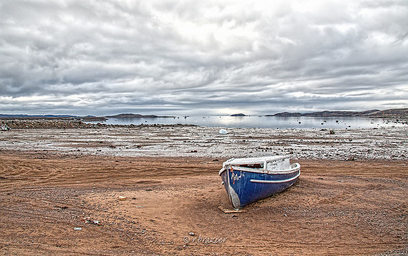Iqaluit, Nunavut

Year(s) Funded: 2014-2015
Topic Area: Knowledge Sharing / Education Contact: Ceporah Mearns, Qaujigiartiit Health Research Centre ([email protected]) and Gwen Healey, Qaujigiartiit Health Research Centre ([email protected]) Partners: Qaujigiartiit Health Research Centre, Nunavut Department of Environment, Nunavut Tunngavik Inc., Nunavut Research Institute, Government of Nunavut Climate Change Centre, Nunavut Department of Health Website: http://www.qhrc.ca Title: A mixed method study to explore human health indicators and youth perspectives on climate change and adaptation in Nunavut
Action: A 2-prong mixed method study was done to gather youth perspectives on climate change and health, and to explore circumpolar human health indicators. PROJECT A: QHRC conducted three Youth Photovoice workshops for the project with three youth from Hall Beach, Arctic Bay, and Pond Inlet. Workshops were held in Iqaluit and Baker Lake, NU. The youth photovoice project aimed to explore the research question “What do Nunavut youth perceive to be the most pressing health and wellness issues related to climate change? What do youth perceive to be the role of language, knowledge transfer, and Inuit culture in adaptations to climate change?” PROJECT B: A health indicators workshop was held to investigated human health indicators of climate change on a global scale with a particular focus on the indicators relevant to the Circumpolar region and Nunavut communities. Participants at the workshop included representatives from community, territorial and regional representatives. The results from the health indicators workshop were compiled in to the report entitled Exploring Health-Related Indicators of Climate Change in Nunavut. Results: Many youth expressed concerns around loss of sea ice and snow cover, and the implications for hunting and subsistence. They had concerns about late freeze and early thaw, and the increased risk associated with taking part in on-the-land activities. They also highlighted the importance of learning a lot of these skills from elders and skilled hunters as a way to adapt to the changing conditions. The youth recognized the importance of transferring knowledge from older generations, and expressed concerns that this is not necessarily taking place like it used to. Outputs: 3 youth each created a photovoice project of climate change impacts in their communities, which was shared with their respective communities. |
